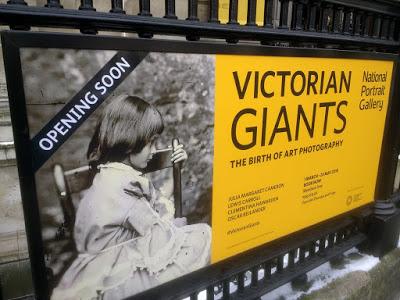
I was lucky enough to be invited to the press review and so spent time on Wednesday up in snowy London seeing how you could bring together the careers of Julia Margaret Cameron, Lewis Carroll, Oscar Rejlander and Clementina Hawarden, all pioneers in 'art photography' in the middle of the 19th century. As we have discussed before, I have come across the work of all of them, but only written about Cameron, Carroll and Rejlander. My knowledge of Hawarden was limited to 'she was a bit posh and did girls in sunlit rooms, like an arty Victorian version of Flowers in the Attic'. I was delighted to learn more...
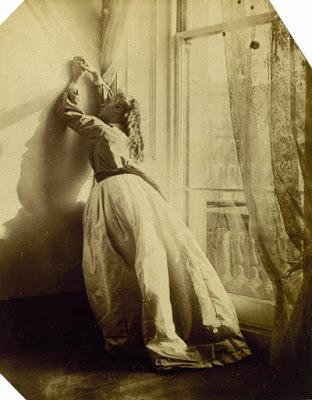
Clementina Maude (1862-3) Clementina Hawarden
Short-lived Scottish aristo, Lady Clementina Hawarden didn't (in my mind, anyhow) seem to have a great deal in common with, for example, Lewis Carroll, but the genius of this exhibition is that they not only show who bought whose photographs, but also put images together so you end up going 'Oh, I see...'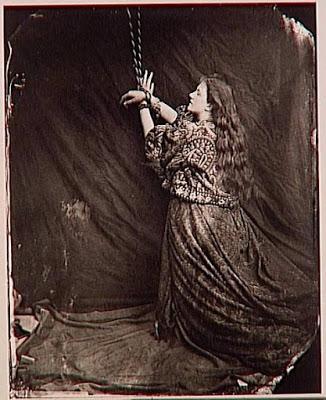
Kate Terry as Andromeda (1865) Lewis Carroll
There are rather a lot of 'oh, I see' moments in the show, not only with what they show, but also if you bring your own knowledge to bear on what you see. Hawarden's captive girls, caught by privilege and isolated by their gender, are clearly reflected in images of captive princesses, offered up as sacrifice.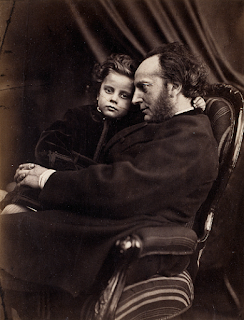
Lord Elcho and Son (1860) Oscar Rejlander
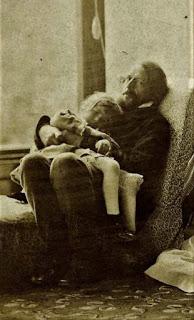
Detail of Tennyson and son, from a photograph of the Marshall Family (1857) Lewis Carroll
The very dignified image of Lord Elcho and his little poppet of a son reminded me of that weird image of Tennyson looking very wary with Hallam on his knee, taken by Lewis Carroll. They couldn't be more different in tone even though it is essentially the same image. You begin to learn about the person behind the camera by what they think is okay to show in front of it. I really think Carroll lacked the ability to distinguish emotional responses in his subjects because there are moments where you wonder why he chose that picture, that expression or response from his subject, but that also is what makes him an interesting chap, if a little controversial.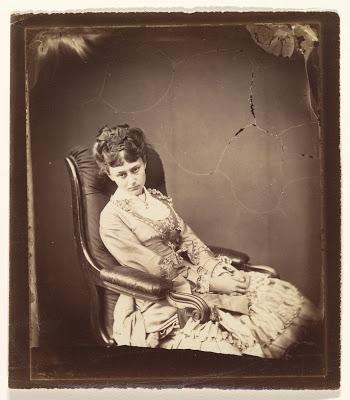
Alice Liddell (1870) Lewis Carroll
If you were hoping for a discussion about Carroll's motivation in his photography of children, this is not the exhibition for you, but then I'm guessing we're all grown ups and don't need that. In fact, I found the NPG have done much to reintegrate Carroll's work into the mainstream and when seen in the context of others, he doesn't seem so weird. So when you take this...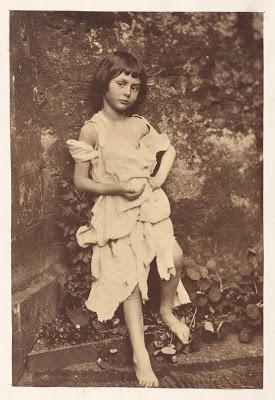
The Beggar Maid (1858) Lewis Carroll
in the same breath as this...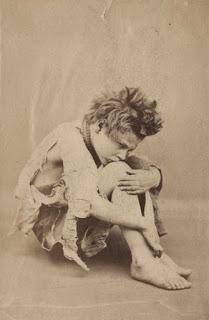
Beggar Boy (1862) Oscar Rejlander
It just seems part of the same 'poverty as art' theme, whilst being equal parts conscience-raising and distasteful is not sexual. Even when Carroll is being a bit 'dodgy', seen within the context of what others were doing, it loses some of its impact, for example...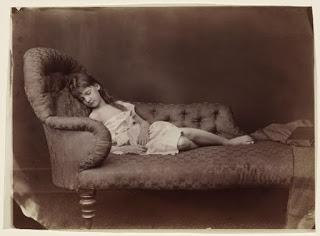
Xie Kitchin Asleep on a Sofa (1873) Lewis Carroll
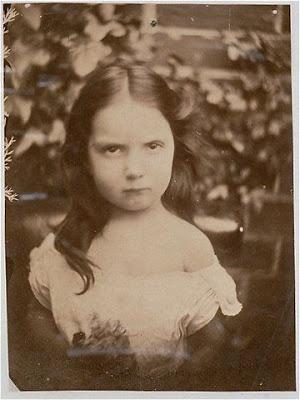
Charlotte Norman (1863) Oscar Rejlander
It's all about context and what the others were doing at the same time. I suppose, if I had a criticism, then Hawarden, with her beautiful girl-butterflies trapped in one room, shows the least range and doesn't participate in the sharing of subjects to the same extent the others do. It's wonderful to see Lewis Carroll's images of Tennyson beside Rejlander's and Cameron's, not to mention the sharing of John Herschel and Charles Darwin between photographers. When grouped like that you can enjoy the precision of Carroll, the dream-like qualities of Cameron and Rejlander's depth and wit. Actually for me, Oscar Rejlander came out of this as a bit of a star. Carroll lacks humor in his work but Rejlander has it in buckets, often straying into absurdity but always very well done. He can also match Cameron for sheer beauty which made the part of the gallery with their photographs together an utter delight.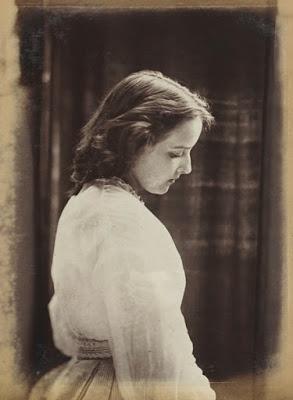
Unidentified Woman (1863-6) Oscar Rejlander
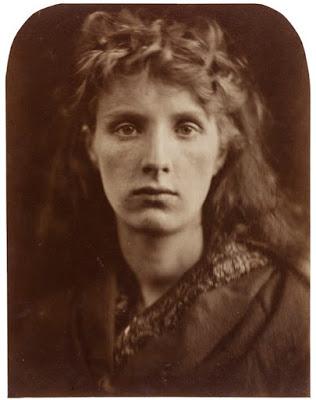
Mountain Nymph, Sweet Liberty (1866) Julia Margaret Cameron
So in conclusion, this is gorgeous. The way all four photographers moved in and out of each others lives is fascinating and Oscar Rejlander should be a national Swede-y hero for what he has brought to our photography heritage. Boobs, for one thing.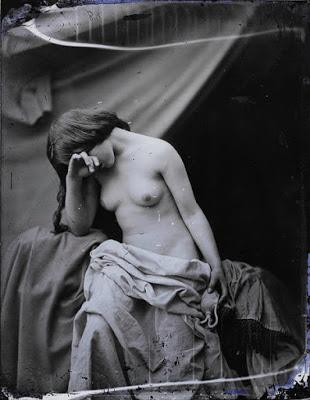
Female Draped Artist Study (1857) Oscar Rejlander
Since the NPG acquired the Rejlander album last year, this exhibition has always been on the cards and in a way I wish they had done a one-man show but it is a wonderful blend of the familiar and the obscure, the great and the nude of Victorian society and I can't recommend it enough. I'll end on my favorite image, which looks like a 1940s movie poster...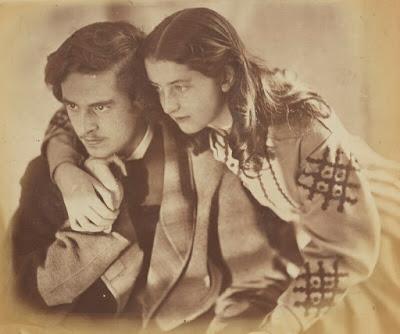
John and Minnie Constable, Looking into the Fire, All Hallow's Eve (1860-6)
God bless you, Rejlander, that's delicious.Victorian Giants: The Birth of Art Photography is on until May and further information can be found here.

